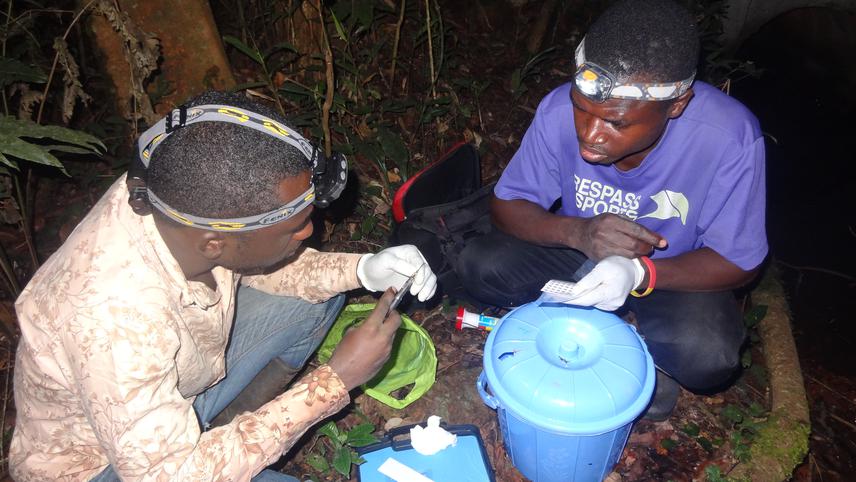David Amaning Kwarteng
Other projects
6 Feb 2012
Mitigating Biodiversity Extinctions in Ghana: The Case of Hyperolius bobirensis
21 Oct 2013
Imminent Actions for the Conservation of the Endangered and Endemic Bobiri Reed Frog, Eastern Ghana I
12 Jul 2018
Imminent Action for the Conservation of the Endangered and Endemic Bobiri Reed Frog, Eastern Ghana III
This project aims at ensuring that the Bobiri reed frog survives for the longer term, by improving the quality and extent of its habitat whilst halting all its current threats through community engagements.

The Bobiri reed frog (Hyperolius bobirensis) is classified as endangered by the IUCN. The species was once abundant in the habitat where it was first described (Bobiri forest reserve). Currently the species is locally extinct in this reserve due to the absence of suitable habitats (the species prefers perennial forest ponds). In 2011, through the generous support of Rufford Foundation, a viable population of the species was discovered in the Atewa Upland Evergreen Forest. The current population has less than 150 individuals remaining. Unfortunately, this population is faced with threats from illegal logging, illegal small-scale mining and collection of collection non-timber forest products. Recently these factors have led to the drying of the perennial pond in which the species dwells, posing imminent extinction threat to the species. Thus unless urgent actions are taken, the long-term persistence of the species cannot be guaranteed.
This project aims to sustain and increase the current population of the Bobiri reed frog. This current project is focused on improving the quality of the species habitat, increasing knowledge of local communities and diversifying their source of economic livelihoods. Specifically we will plant fast growing indigenous tree species on the banks of the pond to ensure it does not dry up. We will also undertake trainings in grasscutter rearing and beekeeping for community members. We will use innovative community conservation outreach strategies including soccer for frogs to increase awareness and solicit community participation for amphibian conservation. We will use standardized protocols to monitor the population of the species over the period. These activities will ensure that, the Bobiri reed frog is given a fighting chance of survival.